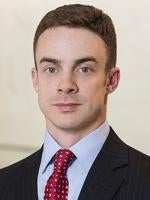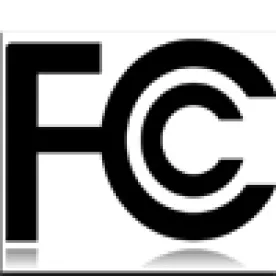Legislative Activity
Lawmakers Expected to Introduce Spectrum Legislation Soon
Though nothing has been introduced, recent reports suggest that that the public can expect members of the House Energy and Commerce Committee (House Commerce Committee) and the Senate Committee on Commerce, Science, & Transportation Committee (Senate Commerce Committee) to introduce legislation aimed at freeing up government spectrum. Budget issues are expected to be a big part of the remaining work for Congress during its few remaining legislative days after the August recess and spectrum legislation could be helpful on that front because spectrum auctions produce revenues for the U.S. Treasury. The legislation purportedly will aim to have the federal government relinquish some of its spectrum through auction. Relinquishment of government-occupied spectrum is a proposition that has been echoed by Federal Communications Commission (FCC) Commissioners like Michael O’Rielly, who, in a September 8 blog post proposed charging agency spectrum fees (ASFs) for users of government spectrum to incentivize the government to reduce its spectrum allocation, which currently occupies between 60 and 70 percent (approximately 2,417 MHz) of spectrum in highly valuable bands between 225 MHz and 3.7 GHz. The comments also come as the FCC prepares to embark on its Broadcast Incentive Auction, a landmark auction of broadcast television spectrum set to begin March 29,2016 that is designed to free up valuable spectrum to support the country’s skyrocketing need for mobile broadband.
Senators Announce Proposal for Vehicle Spectrum Sharing Test
On September 10, Senate Commerce Committee chairman John Thune (R-SD) and committee members Marco Rubio (R-FL), and Cory Booker (D-NJ) announced that they had reached an agreement with representatives from the automotive and technology industries concerning a testing process for sharing wireless spectrum in the 5.9 GHz Band allocated for intelligent transportation services and vehicle-to-vehicle (V2V) communication by the FCC in 1999. The proposal calls for tests to be conducted concerning the feasibility of sharing spectrum in the 5.9 GHz band with specific emphasis on whether such sharing could cause interference with new vehicle safety technologies. If the tests prove successful, valuable spectrum could be made available for various unlicensed uses, including Wi-Fi. The plan outlines nine testing principles to be followed, including that the FCC, in conjunction with the Department of Transportation (DOT) and Department of Commerce (DOC), should take the lead in designing the appropriate tests and models. The Senators in addition to technology and automotive industry representatives wrote letters to the DOT, DOC, and the FCC memorializing the agreement and highlighting that the proposal responds to the country’s ever-growing demand for spectrum.
This Week’s Hearings:
-
Wednesday, September 16: The Senate Committee on the Judiciary will hold a hearing entitled “Reforming the Electronic Communications Privacy Act.”
Regulatory Activity
FCC Announces Final Agenda for September 17 Open Meeting
On September 10, the Federal Communications Commission (FCC) released a final meeting agenda for its September 17 Open Meeting. The agency will consider the following items:
-
Amendment of Section 73.1216 of the Commission’s Rules Related to Broadcast Licensee-Conducted Contests. The FCC will consider a Report and Order to “provide broadcasters greater flexibility in their disclosure of contest terms,” per the meeting agenda.
-
Improving Outage Reporting for Submarine Cables and Enhancing Submarine Cable Outage Data. The FCC will consider a Notice of Proposed Rulemaking that “proposes to require submarine cable licensees to report outages,” per the meeting agenda.
-
Consent Agendas. The FCC will also consider 13 consent agenda items listed in the meeting agenda.
The FCC’s Open Meeting will be held Thursday, September 17 at 10:30 a.m. in Room TW-C305 at the FCC’s headquarters at 445 12th Street, S.W., Washington, D.C., and also streamed live at fcc.gov/live.
FCC Seeks Comment on Proposed Merger of Charter, Time Warner Cable, and Bright House Networks
In a September 11 Public Notice, the FCC announced that it was seeking comment on the proposed merger of Charter Communications, Inc., Time Warner Cable Inc., and Advance/Newhouse Partnership’s Bright House Networks, LLC. If the merger is approved, the combined entity – “New Charter” – would own or manage systems serving approximately 19.4 million broadband customers, 17.3 million video customers, and 9.4 million voice customers, and would become the third-largest multichannel video programming distributor by customer base, according to statements of the companies set forth in a July 27 FCCPublic Notice.
The FCC is seeking comment from “interested persons to assist the Commission in its independent review” of the proposed transaction. Initial comments and petitions are due to the FCC October 13, responses to comments and oppositions to petitions are due November 2, and replies to responses or oppositions are due November 12.
FCC Releases Agenda for Robocall-Blocking and Spoofing Workshop
On September 16, the FCC is holding a workshop to “examin[e] the current state of robocall-blocking and call-filtering solutions, steps industry is taking to protect consumers from unwanted robocalls, and potential solutions to caller ID spoofing,” per a Public Notice (PN) released September 10. FCC Chairman Tom Wheeler will give the opening remarks for the workshop, followed by four panels discussing the following questions:
-
Why do consumers need blocking services, and what types of services work best?
-
What third-party solutions are available, and what are the challenges to making them more effective?
-
What do carriers and other providers currently offer, and what are the challenges they face in making them more effective?
-
How can gateway providers help stop unwanted robocalls?
One goal of the workshop, according to the PN, is to generate a “discussion of possible steps and timelines toward improved blocking of unwanted robocalls and reducing the incidence of caller ID spoofing.” To that end, the FCC proposes a series of benchmarks in the PN for achieving various solutions to reduce unwanted calls, caller ID spoofing, and fraud, including proposals for: carriers using VoIP-enabled exchanges to enable simultaneous ringing-based call filtering by Winter 2015-2016; carriers offering “egregious callers” filters by Spring 2016; and carriers offering user-controlled call filtering by Fall 2016, among other proposals.
The workshop will be held on Wednesday, September 16 from 9 a.m. to 3 p.m. in the Commission Meeting Room at the FCC’s headquarters. The workshop is open to the public although “seating is limited,” according to the PN. It will also be streamed live at fcc.gov/live.
FCC Announces October 8 Meeting of the Disability Advisory Committee
The FCC’s Disability Advisory Committee (DAC) will hold its next meeting October 8, according to a Public Notice (PN) released by the FCC September 10. The DAC was established by the FCC in December 2014 to “make recommendations to the [FCC] on a wide array of disability matters within the jurisdiction of the [FCC], and to facilitate the participation of people with disabilities in proceedings before the [FCC][,]” according to the PN. At its October 8 meeting, the DAC will hear reports about, and make recommendations from its subcommittees on: (1) “ways to address the needs of people with disabilities in new and emerging technologies”; (2) the activities of its Emergency Communications Subcommittee; (3) proposed comments from its Relay/Equipment Distribution Subcommittee for the DAC to file regarding the transition of communication networks to Internet protocol; (4) the activities of its Video Programming Subcommittee; and (5) its Real Time Text (RTT) Ad Hoc Subcommittee regarding the Public Notice about AT&T’s Petitions for Waiver and Petition for Rulemaking.





 />i
/>i

